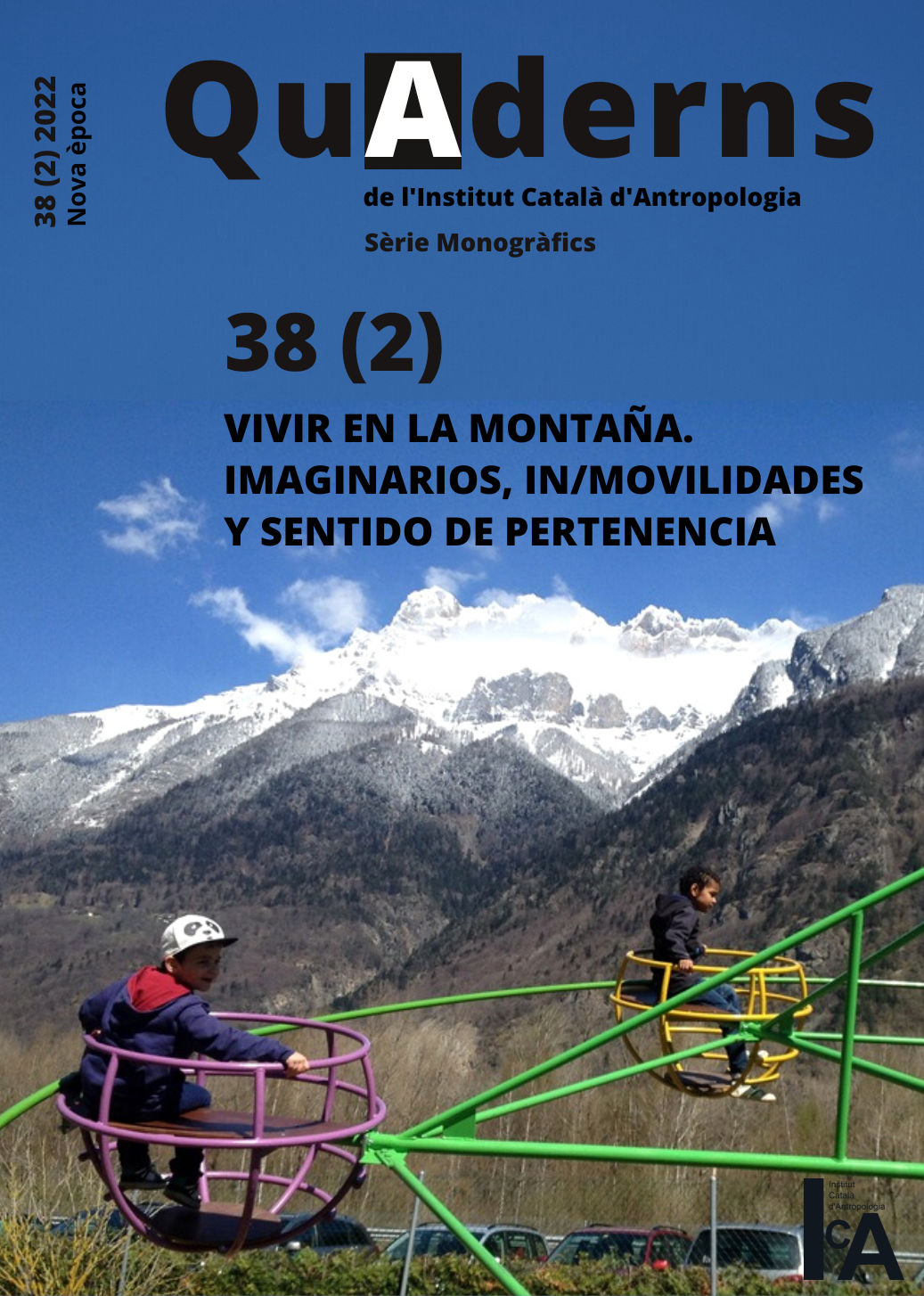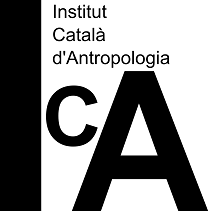“Viure a rural”: “Country People”, Neo-rural and Other Im/Mobile Profiles in the Catalan Pyrenees
DOI:
https://doi.org/10.56247/qua.413Keywords:
rurality, neo-rurals, rural representation, depopulation, Catalan Pyrenees, im/mobilityAbstract
In this article we explore the diversity of im/mobility trajectories that populate the mountain areas of the Catalan Pyrenees. We trace the local mobility regimes that offer a model of open questioning of mobile binarism, exploring the conditions of possibility that allow and deny the various mobile trajectories in relation to the complexity of local population categories.
Our ethnography reveals a series of public debates about these social categories that open the door to reflections on the individual's im/mobility trajectories, people who live and travel through the depopulation of these mountains for decades. This brings us to a scenario of implicit questioning of binarism while going beyond the naturalization of those who have "stayed". While from the classic paradigm of migration movements is considered as the relevant object of study, our research shows specific assemblages of differential power that result into the need of local inhabitant to justify their lack of movement. This is understood within some representations of local depopulation as a lack of entrepreneurship. We explore how this situation shapes the complexity of categories of local population that in turn sets limits of possibility for the configuration of identities embodied and lived by different sectors of the population.
Downloads
Global Statistics ℹ️
|
768
Views
|
527
Downloads
|
|
1295
Total
|
|
References
Aceves, J. y Douglass, W. (1976). The Changing Faces of Rural Spain. Schenkman Publishing.
Appadurai, A. (1996). Modernity at large. Cultural dimensions of globalization. University of Minnesota Press.
Barrera, A. (1990). Casa, herencia y familia en la Cataluña rural. Lógica de la razón doméstica. Alianza Editorial.
Bauman, Z. (2003). Comunidad. En busca de seguridad en un mundo hostil. Siglo XXI.
Berry, B. (1980). Urbanization and Counterurbanization in the United States. The Annals of the American Academy of Political and Social Science, 451, 13-20. DOI: https://doi.org/10.1177/000271628045100103
Bourdieu, P. (2002). Le bal des célibataires. Crise de la société paysanne en Bearn. Éditions du Seuil.
Bretón, V., Comas d’Argemir, D. y Contreras, J. (1997). Cambio social en la agricultura familiar española. En C. Gómez Benito, J.J González Rodriguez (Eds.), Agricultura y sociedad en la España contemporánea (pp. 653-671). Ministerio de Agricultura, Pesca y Alimentación – Centro de Investigaciones Sociológicas.
Campillo, X. y Villaró, A. (1988). Introducció al programa MAB-6 Alt Pirineu: L'area d'estudi. Documents d'Anàlisi Geogràfica, 12, 7-19.
Chevalier, M. (1981). Les phénomenes néo-ruraux. L 'Espace Géographique, 1, 33-47. DOI: https://doi.org/10.3406/spgeo.1981.3603
Chevalier, M. (1993). Neo-rural phenomena. Espace géographique. Espaces, modes d'emploi. Two decades of l'Espace géographique, an anthology. Special issue in English, 175-191. DOI: https://doi.org/10.3406/spgeo.1993.3201
Collantes, F. (2009). Rural Europe reshaped: the economic transformation of economic upland regions, 1850-2000. The Economic History Review, 62, 2, 306-323. DOI: https://doi.org/10.1111/j.1468-0289.2008.00439.x
Comas d’Argemir, D. (2006). Casa, familia y estratificació social: estrategias de herencia y de trabajo en una población rural catalana. En X. Roigé (coord.), Familias de ayer, familias de hoy (pp. 141-176). Icaria.
Collier, J. (1997). From duty to desire. Remaking families in a Spanish village. Princeton University Press. DOI: https://doi.org/10.1515/9780691215860
Contreras, J. y Narotzky, S. (1997). L’ajut mutu com a previsió de la necessitat: continuïtats i canvis. Revista d’Etnologia de Catalunya, 11, 20-31.
Contreras, J., Viola, A., Estrada, F., Roigé, X. y Prats, L. (1989). La invenció de la família catalana. L’Avenç, 132, 15–53.
Cresswell, T. (2002). Introduction: Theorizing Place. En G. Verstraete y T. Cresswell (Eds.), Mobilizing Place, Placing Mobility (pp. 11-32). Brill. DOI: https://doi.org/10.1163/9789004333451_003
Cucó, J. (2018). La izquierda revolucionaria y la Transición. Dinámicas y procesos. Debats, 132(1), 13-24. DOI: https://doi.org/10.28939/iam.debats-132-1.2
Dzenovska, D. (2018). Emptiness and its futures. Staying and leaving as tactics of life in Latvia. Focaal- Journal of Global and Historical Anthropology, 80, 16-29. DOI: https://doi.org/10.3167/fcl.2018.800102
Ferguson, J. y Gupta, A. (2002). Spatializing states: toward an ethnography of neoliberal governmentality. American Ethnologist, 29(4), 981-1002. DOI: https://doi.org/10.1525/ae.2002.29.4.981
Fillat, F. (2003). La intensificació ramadera i l’abandó, dues tendències dels Pirineus espanyols al començament del s. XXI. Espais Monogràfics, La Muntanya a Catalunya, 49, 8-14.
Frigolé, J. (2007). Producció cultural de lloc, memòria i terciarització de l’economia en de la Vall de la Vansa i Tuixent (Alt Urgell). Generalitat de Catalunya.
Frigolé, J. (2005). Dones que anaven pel món. Estudi etnogràfic de les trementinaires de la Vall de la Vansa i Tuixent (Alt Urgell). Generalitat de Catalunya.
Glick-Schiller, N. y Salazar, N. (2013). Regimes of Mobility Across the Globe. Journal of Ethnic and Migration Studies, 39(2), 183-200. DOI: https://doi.org/10.1080/1369183X.2013.723253
Godelier, M. (1989). Lo ideal y lo material. Pensamiento, economías, sociedades. Taurus.
Guirado, C. (2007). Del despoblament a la revitalització demogràfica: canvis en el comportament de la població al Pirineu català (1860-2006). El cas de l’Urgellet i el Baridà (Alt Urgell-Cerdanya). Treball de recerca. UAB.
Gupta, A. y Ferguson, J. (1997). Beyond Culture: space, identity and the politics of difference. En A. Gupta y J. Feguson (Ed.), Culture, Power and Place: explorations in critical anthropology (pp. 33-51). Duke University Press. DOI: https://doi.org/10.2307/j.ctv11vc7nf.5
Halfacree, K. (2013). Running wild in the country? Mobilising rural in-migration. En L. Silva y E. Figuereido (Eds.), Shaping rural areas in Europe (pp. 11-24). Springer. DOI: https://doi.org/10.1007/978-94-007-6796-6_2
Hannerz, U. (1996). Transnational connections. Routledge.
Harvey, D. (1998). La condición de la posmodernidad. Investigación sobre los orígenes del cambio cultural. Amorrurtu.
Harvey, D. (2003). The new imperialism. Oxford University Press. DOI: https://doi.org/10.1093/oso/9780199264315.001.0001
Hérvieu, B. y Léger, D. (1979). Le retour à la nature: au fond de la forêt.... l’Etat. Le Seuil.
Jessop, B. (2006). Spatial fixes, temporal fixes, and spatio-temporal fixes. En N. Castree y D. Gregory (Eds.), David Harvey. A critical reader (pp. 142-168). Blackwell. DOI: https://doi.org/10.1002/9780470773581.ch8
MacClancey, J. (Ed.). (2015). Alternative countrysides. Antrhopological approaches to Rural western Europe today. Manchester University Press DOI: https://doi.org/10.7228/manchester/9780719096846.001.0001
Mármol, C. del (2012). Pasados locales, políticas globales. Procesos de patrimonialización en un valle del Pirineo catalán. Germanias.
Mármol, C. del (2016). Muntanyes de formatge. Transformacions productives i patrimonialitzacions a l’Urgellet i el Baridà. Generalitat de Catalunya.
Mármol, C. del, Celigueta, G. y Vaccaro, I. (2018). Socioeconomic Transitions and Everyday Life Changes in the Rural World: Pyrenean Households and their Contemporary Economic History. Journal of Agricultural Change, 18(3), 677-693. DOI: https://doi.org/10.1111/joac.12254
Martínez Illa, S. (1987). Utopia, espai i migracions utòpiques: El retorn al camp. Documents d’anàlisi geogràfica, 11, 61-79.
Mata, D. (2016). (In)movilidades en un pueblo del centro de México. Cuernavaca, Morelos: Universidad Nacional Autónoma de México. Centro Regional de Investigaciones Multidisciplinarias. DOI: https://doi.org/10.22201/crim.9786070283277e.2017
Moreno-Caballud, L. (2010). Topos, carnavales y vecinos. Derivas de lo rural en la literatura y el cine de la transición española (1973–1986) (Tesis de Doctorado) Princeton University.https://www.proquest.com/openview/d0adef7576c8ebaecfa6a227732b62de/1?pq-origsite=gscholar&cbl=18750
Nistal, J. (2008). L’estructura agrària i la propietat de la terra a la segona meitat del segle XIX a l’Alt Urgell. Papers de recerca històrica, 5, 68-94.
Olivé, P. (2011). El movimiento pacifista en la transición democrática española. En R.
Pérez Díaz, V. España puesta a prueba: 1976-1996. Alianza.
Roigé, X. y Frigolé J. (Eds.). (2010). Constructing cultural and natural heritage. Parks, museums and rural heritage. ICRPC Llibres.
Roigé, X., F. Estrada, y Beltran, O. (1997). La casa aranesa. Antropologia de l’arquitectura a la Val d’Aran. Garsineu edicions.
Sassen, S. (2014). Expulsions. Brutality and complexity in the global economy. Harvard University Press. DOI: https://doi.org/10.4159/9780674369818
Sheller, M. y Urry, J. (2006). The new mobilities paradigm. Environment and Planning, 38, 207-226. DOI: https://doi.org/10.1068/a37268
Vaccaro, I. y Beltran, O. (Eds.). (2010). Social and Ecological History of the Pyrenees State, Market, and Landscape. Left Coast Press.
Vandergeest, P. y Peluso, N. (2009). Territorialization and state power in Thailand. Theory and Society, 24, 385-426. DOI: https://doi.org/10.1007/BF00993352
Waldren, J. (1996). Insiders and Outsiders. Paradise and reality in Mallorca. Berghan Books. DOI: https://doi.org/10.2307/j.ctv287sf93
Williams, R. (2001). El campo y la ciudad. Paidós.
Downloads
Published
How to Cite
Issue
Section
License
Distributed under the terms of the Creative Commons Attribution 4.0 International Use and Distribution License (CC BY-NC-SA 4.0)




